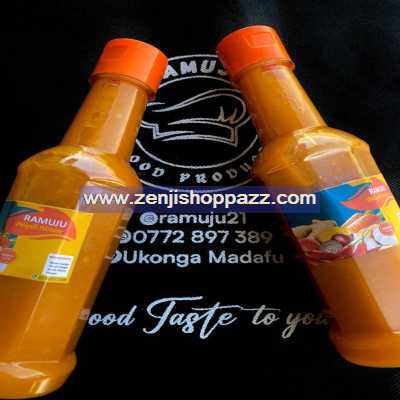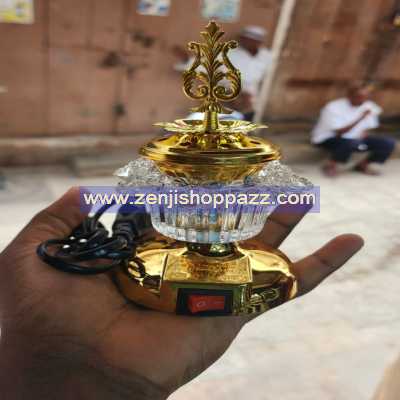nafasi ya Kazi Women’s Economic Empowerment Expert
Maelezo
Chanzo: UNV
Tarehe Iliyotolewa: 2023-04-10

Women’s Economic Empowerment Expert
Onsite United Republic of Tanzania
10 months
assignment(s)
Fully funded
Advertisement end date:04/05/2023
General
Description of assignment title
Women’s Economic Empowerment Expert
Assignment country
United Republic of Tanzania
Expected start date
01/06/2023
Sustainable Development Goal: Gender equality
Volunteer category: International UN Volunteer Expert
DoA reserved for persons with disabilities No
Host entity
UNWomen Type
Onsite
Duration 10 months
Number of assignments 1
Duty stations Dar es Salaam
Details
Mission and objectives
UN Women, grounded in the vision of equality enshrined in the Charter of the United Nations, works for the elimination of discrimination against women and girls; the empowerment of women; and the achievement of equality between women and men as partners and beneficiaries of development, human rights, humanitarian action and peace and security. Placing women’s rights at the centre of its efforts, UN Women is mandated to lead and co-ordinate United Nations system efforts to ensure that commitments on gender equality and gender mainstreaming are translated into action. It is also mandated to provide strong and coherent leadership in support of Member States’ priorities and efforts, building effective partnerships with civil society and other relevant actors. In line with the Tanzania’s national priorities, UN Women’s strategic Plan 2022-2026 lays out the agency’s unique role and comparative advantage in supporting national stakeholders in advancing gender equality and the empowerment of women by strengthening women’s leadership and participation in political and governance systems, gender statistics, implementation of global gender norms and standards, ending violence against women and girls, and women’s economic empowerment.
Context
The Women’s Economic Empowerment Programme recognizes the need to support women increased agency in green and blue economies to ensure equal representation at all levels including in development of appropriate policy interventions; the deployment of more effective tools, technologies, infrastructure, and institutions to implement measures to build resilience; and the achievement of sustainable resource management for resilient green and blue value chains. Women remain key players and make up more than 50 percent of the agricultural labor force in Tanzania. They play a vital role in ensuring family food security. However, gender-based inequalities in access to and control of productive and financial resources inhibit their agricultural productivity and undermine their resilience and sustainability efforts, creating a substantial gender gap in productivity. Thus, UN Women Tanzania Country Office is looking for an International Volunteer to support the implementation of climate smart interventions at various levels in Tanzania Mainland and Zanzibar both aimed at contributing to responding to the challenges and barriers rural women face, facilitating access to local nutrient dense foods to ensure food security and nutrition, enhancing rural women smallholder farmers’ livelihoods and income, improving skills and knowledge to mitigate climate change, enhancing marketing business ventures and sustainability, and contributing to creating a conducive environment for rural women’s economic empowerment
Task description
Under the direct supervision of the Women’s Economic Empowerment Programme Specialist, the UN Volunteer will undertake the following tasks: 1. Programme Development and Management (40%)
• Supports the implementation of ongoing programmatic initiatives with a specific focus on the green and blue economies.
• Contributes to the development of new WEE programme initiatives.
• Supports partnership development with other UN agencies, experts, government institutions and Civil Society Organisations ensuring timely and efficient delivery of inputs related to the assigned portfolio.
• Supports programme/projects monitoring and evaluation according to results-based management requirements.
2. Policy Analysis/Research (20%)
• Supports policy analysis and research and identifies entry points for strengthening UN Women’s programming in the area of women’s economic empowerment, with a focus on the Programmes in green and blue value chains. 3. Inter-Agency Coordination Support (20%)
• Supports annual reporting processes in relation to the UNSDCF.
• Participates in UNSDCF coordination meetings and in particular the planet and prosperity outcome groups.
• Supports collection of data and analysis and research.
4. Advocacy support and facilitation of knowledge building and management (20%) • Supports relevant, high-impact advocacy activities and campaigns with key partners of the UN Joint Programmes.
• Collects knowledge on current and emerging trends by gathering relevant infor-mation on programmes, projects, strategies, approaches, and ongoing experience for lessons learned, best practices at regional and global level.
• Participates in program monitoring visits at the field level and helps to prepare re-ports. • Contributes to knowledge networks and communities of practice. Furthermore, UN Volunteers are required to:
• Strengthen their knowledge and understanding of the concept of volunteerism by read-ing relevant UNV and external publications and take active part in UNV activities (for in-stance in events that mark International Volunteer Day);
• Be acquainted with and build on traditional and/or local forms of volunteerism in the host country.
• Reflect on the type and quality of voluntary action that they are undertaking, including participation in ongoing reflection activities.
• Contribute articles/write-ups on field experiences and submit them for UNV publica-tions/websites, newsletters, press releases, etc.;
• Assist with the UNV Buddy Programme for newly arrived UN Volunteers.
• Promote or advise local groups in the use of online volunteering or encourage relevant local individuals and organizations to use the UNV Online Volunteering service whenever technically possible.
Eligibility criteria
Age
35 - 80
Additional eligibility criteria
This assignment is funded by the Government of Japan, therefore only Japanese nationals are eligible to apply.
Nationality
Candidate must be a national of a country other than the country of assignment.
Donor priorities
-
Requirements
Required experience
15 years of experience in 15 years in the areas of Women’s Economic Empowerment - Care Economy, Green Economy, Blue Economy, Food Security, Gender responsive agriculture Value Chains, Market Systems, Community Engagement, and Public and Private Sectors Engagement
Area(s) of expertise
Economics and finance
Driving license
-
Languages
English, Level: Fluent, Required
Required education level
Master degree or equivalent in Master’s degree in Gender, Monitoring and Evaluation, Agriculture, Economics, Social Protection, Financial Inclusion, Development Studies, Social Sciences, Community Development, or related fields
Competencies and values
? Adaptability and Flexibility ? Building Trust ? Client Orientation ? Commitment and Motivation ? Commitment to Continuous Learning ? Communication ? Creativity ? Empowering Others ? Ethics and Values ? Integrity ? Judgement and Decision-making ? Knowledge Sharing ? Leadership ? Managing Performance ? Planning and Organizing ? Professionalism ? Respect for Diversity ? Self-Management ? Technological Awareness ? Vision ? Working in Teams
Other information
Living conditions and remarks
Tanzania, officially the United Republic of Tanzania, is in East Africa, bordered by Kenya and Uganda to the north; Rwanda, Burundi and the Democratic Republic of the Congo to the west; and Zambia, Malawi and Mozambique to the south. The country's eastern border is formed by the Indian Ocean. Kilimanjaro, Africa's highest mountain, is in northeastern Tanzania. Dar es Salaam is the largest city in Tanzania, as the major port and economic center. Dar es Salaam is situated on the coast, overlooking the Indian Ocean. It is an International multicultural city with a mix of religions. The city has a wide range of facilities available, including numerous shopping centers, movie theatres, restaurants and many new developments planned. The living conditions in Dar es Salaam are comfortable although pricy in certain neighborhoods and there are issues with poor infrastructure, so alternative back-up solutions and generators as well as water tanks are common. It is a beautiful and relatively safe location. There are good international education facilities and health facilities with good standards.
Inclusivity statement
United Nations Volunteers is an equal opportunity programme that welcomes applications from qualified professionals. We are committed to achieving diversity in terms of gender, care protected characteristics. As part of their adherence to the values of UNV, all UN Volunteers commit themselves to combat any form of discrimination, and to promoting respect for human rights and individual dignity, without distinction of a person’s race, sex, gender identity, religion, nationality, ethnic origin, sexual orientation, disability, pregnancy, age, language, social origin or other status.
Note on Covid-19 vaccination requirements
Selected candidates for certain occupational groups may be subject to inoculation (vaccination) requirements, including against SARS-CoV-2 (Covid-19) in line with the applicable host entity policy
Bidhaa Mbalimbali
Zenye Promotion
Bidhaa Nyenginezo
Tembelea pia




 Download our app on Google Play
Download our app on Google Play








